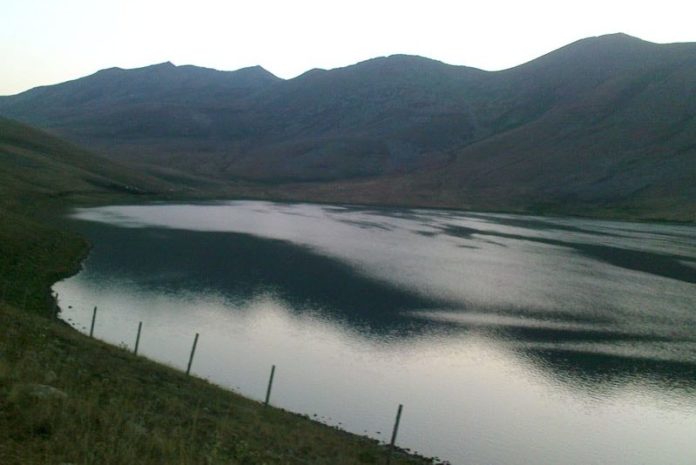YEREVAN –– Armenia will only agree to start border demarcation negotiations once Azerbaijan fully evacuates the area around Lake Sev and ceases further intrusions into Armenian sovereign territory, officials announced this week.
Azerbaijan sparked this ongoing standoff two weeks ago when several hundred Azerbaijani soldiers infiltrated on foot some 3.5 kilometers (2.1 miles) the international border area around the remote Ishkhanasar in Armenia’s Syunik province before being halted by Armenian forces around Lake Sev (Sev Lij). A similar intrusion was also halted south of the village of Verin Shorja in the Gegharkyunik province.
At a press event on Friday, May 18, Foreign Ministry spokeswoman Anna Naghdalyan insisted that in addition to Azerbaijani withdrawal to their positions as of May 11, the processes of border delimitation and demarcation between Armenia and Azerbaijan should be part of the comprehensive peace settlement of the conflict. Naghdalyan added that this framework would include the “de-occupation of the territories of the Artsakh Republic” as well as a final settlement to the unrecognized nation’s legal status under the auspices of the Organization for Security and Cooperation in Europe (OSCE) Minsk group.
The Foreign Ministry’s statement seemingly corresponds to an earlier comment by Prime Minister Nikol Pashinyan concerning a leaked document purportedly exposing plans to cede more territories to Azerbaijan. Pashinyan confirmed the authenticity of the document which was first shared on social media by Mikael Minassian, the exiled son-in-law of former President Serzh Sargsyan, but insisted that it was “100% pro-Armenian.”
The heavily-redacted document, accompanied by allegations from Minassian himself that Pashinyan had agreed to hand over chunks of Armenian sovereign territory to Azerbaijan including half a dozen villages, sparked more protests in the Armenian capital as well as condemnation from opposition politicians. During an emergency parliament session held on Thursday, May 17, Bright Armenia Party leader Edmon Marukyan insisted that a bilateral agreement could not be signed by an interim government and insisted that the Prime Minister hold off until after the June 20 election.
This call was also supported by Transparency International‘s Armenian branch as well as several other civil liberties watchdogs. Human Rights Ombudsman Arman Tatoyan called on the government to publish the uncensored draft in its entirety to “prevent the outflow of information of such exclusive importance from unofficial sources, and avoid an irreversible loss of public trust in state bodies.”










